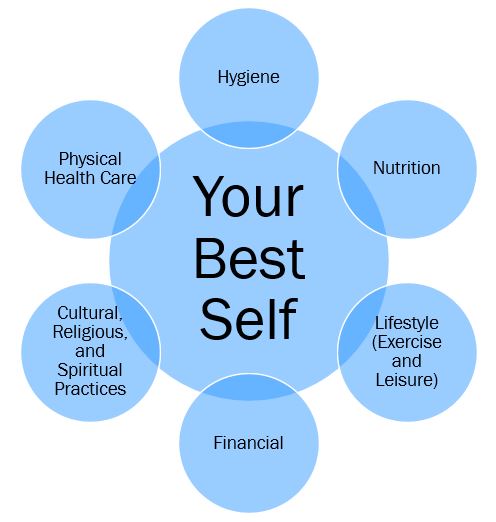Self-care and Your Health
Author : Strive HealthAccording to the World Health Organization (WHO), self-care is “the ability of individuals, families, and communities to promote health, prevent disease, maintain health, and to cope with illness and disability with or without the support of a healthcare provider.”
Simply put, practicing self-care is taking actions that help you feel your best self while considering your limitations. No body is perfect, and a diagnosis does not define you.
Short-term Benefits of Self-care
- Relieve stress
- Boost self-worth
- Increase confidence
- Increase feelings of purpose
- Increase sense of belonging
Long-term Benefits of Self-care
- Overall reported improved quality of life and well-being
- Better management of disease and chronic illness
- Healthier relationships
- Prevention of disease
Self-care is a broad term and includes:
- Nutrition – the foods you eat
- Lifestyle – how you spend your free time
- Financial – how you spend your money
- Cultural, religious, and spiritual practices – how you find meaning and value in life
- Physical Health Care – managing and preventing health issues
- Hygiene – taking care of yourself and the area around you
Self-care is a term that can be easily misunderstood. It is used at times to justify actions or activities that allow individuals to feel better in the moment but may not have lasting benefits and may even be harmful to a person’s goals.
Self-care is NOT:
- Eating unhealthy foods to feel better
- Overspending on items, expensive services or travel to improve mood temporarily or escape reality
- Activities that provide instant gratification, but avoid the problem
- Using alcohol or drugs to cope with situations and stress
Practicing self-care can feel hard at first. You might have thoughts like:
- “Making changes is too hard.”
- “I don’t have time.”
- “It’s too expensive.”
- “I don’t feel like I deserve it.”
- “It’s not how I was taught to manage things.”
What are some healthy examples of self-care?
- Taking steps to improve physical and mental health, such as attending doctor’s appointments and participating in treatment plans
- Eating a healthy diet
- Getting enough and quality sleep (per the CDC the average adult needs 7+ hours a night)
- Finding positive activities that you enjoy both physically and mentally
- Building and keeping healthy relationships with others
- Seeking professional help when needed
- Taking time for yourself
The best kind of self-care is the kind that works for you! To build a plan for self-care that will last:
- Think about your overall level of health. Instead of thinking about what you feel unable to do, use what you can do to begin adding activities.
- List the things that cause you stress. How can you limit these? How can you cope with the ones you cannot change?
- Find coping strategies that work for you. Make a list of all the ways you currently deal with stress. Cross out all the ones that do not serve you or may be unhealthy and replace them with more positive alternatives. If you feel stuck, speak to your social worker for additional options that may help you or reach out to others about what they enjoy doing that helps them to feel their best self. Keep this list somewhere safe and easy to find.
- Schedule time with yourself. Set regular appointments to do what makes you feel whole and show up for yourself.







